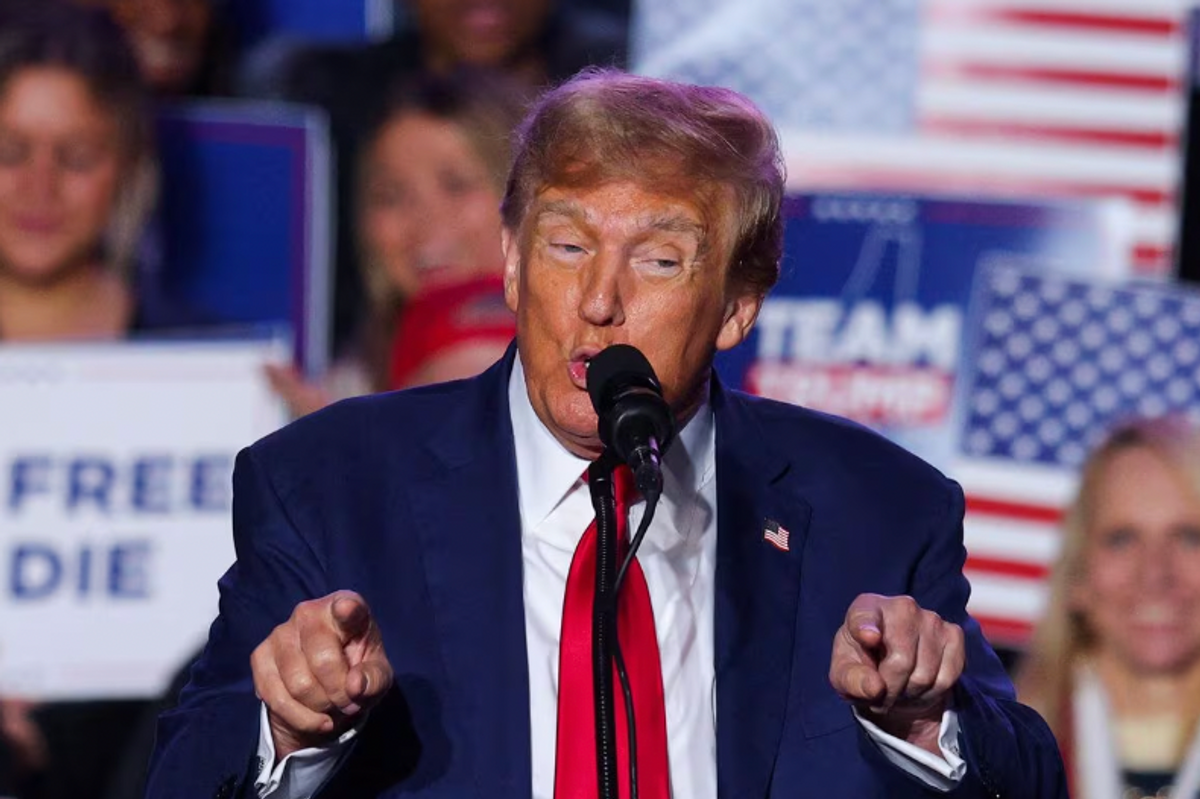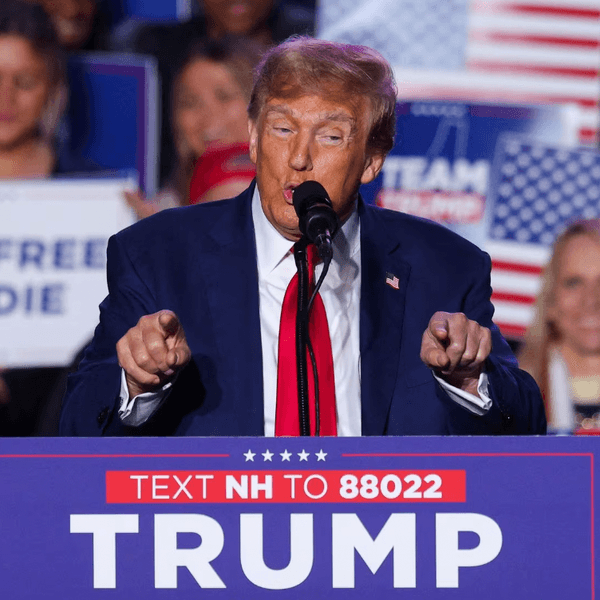Trashing Constitution, Trump Says He'll Order End To Birthright Citizenship
President-elect Donald Trump
After running on a promise to end birthright citizenship, a victorious Donald Trump says he is planning on ending it on day one of his presidency. It’s a tall order given that the text of the 14th Amendment explicitly guarantees it to all people born on U.S. soil, but everyone knows Trump isn’t remotely interested in whether something is unconstitutional.
To anyone not enraptured by a racist fantasy of deporting millions of people, the first sentence of the 14th Amendment is extremely clear: “All persons born or naturalized in the United States, and subject to the jurisdiction thereof, are citizens of the United States and of the State wherein they reside.” If you were born here, regardless of your parents' citizenship status, you’re a citizen.
It’s a practice Trump hates and one he repeatedly lies about, claiming only America has it. That’s been repeatedly debunked, as some three dozen other countries bestow it, including Canada and Mexico. However, even if we were the only country with it, that wouldn’t negate its constitutionality, necessity, or importance.
The 14th was among the Reconstruction Amendments enacted after the Civil War. It guaranteed citizenship to formerly enslaved people, overturning the shameful Dred Scott decision from 1857. In that notorious ruling, the Supreme Court held that a “free Negro” whose ancestors had been brought to this country and then sold into slavery was not a citizen of the United States.
Granting citizenship to formerly enslaved people wasn’t just the right thing to do—it was a necessity in order for the country to move on in unison after the Civil War. Otherwise, former slaveholding states would have remained able to define “citizen” in such a way that would exclude Black people.
The issue these days, of course, is whether that guarantee was limited to the descendants of formerly enslaved people or includes anyone born here, regardless of parentage. For years, lawyer John Eastman has been pushing the idea that the phrase “subject to the jurisdiction thereof” means that the 14th Amendment was not intended to grant automatic citizenship to children of noncitizens because those noncitizens were not “subject to the jurisdiction” of the United States.
This thought process led Eastman to declare that Vice President Kamala Harris may not be a citizen if her parents were only here with temporary permission under student visas. These days, Eastman is better known as a vociferous proponent of the Big Lie that the 2020 election was stolen. He is also one of the architects of the fake elector scheme, for which he now faces criminal charges in Arizona and Georgia and disbarment in California. Yeah, that’s definitely the person you want determining who gets to be a citizen.
Trump is currently running around saying that he can end birthright citizenship via an executive order, a stance he’s pushed since 2018. Anyone who made it through high school civics probably knows that an executive order can’t overrule the Constitution, making that plan a bit dicey. Even getting the incoming GOP-led House and Senate to sign on to a bill doesn’t change the Constitution: That takes 38 of the 50 states ratifying an amendment.
Another problem Trump faces is that the Supreme Court already ruled over 100 years ago that a child born to Chinese citizens residing in the country at the time of his birth was a citizen. Given the current makeup of the Supreme Court, though, who knows whether that long-standing precedent would hold any sway. It’s easy to imagine the conservative majority buying Fifth Circuit Judge James C. Ho’s brand new argument that undocumented people should be considered “invading aliens” and that birthright citizenship “obviously doesn’t apply in case of war or invasion.”
There’s no precedent or support for this idea; it’s basically something Ho made up out of whole cloth after Trump won the election last month. Ho had previously been an enthusiastic supporter of birthright citizenship, but now that he’s perpetually auditioning for a future Supreme Court seat, he had to figure out a way to align himself with Trump.
None of this means anyone should rest easy and assume the dismantling of birthright citizenship won’t come to some degree of fruition. Eternally ghoulish Trump adviser Stephen Miller has proposed refusing to issue citizenship documents such as passports and social security numbers to children born here but whose parents are not citizens. On “Meet the Press” last Sunday, Trump went a step further and said he’d just deport children who are citizens along with their undocumented parents because “I don’t want to be breaking up families.”
Speaking of families, Trump critics have pointed out that his children Don Jr., Eric, Ivanka, and Barron were all born to mothers who were not citizens at the time of their births and speculated that Trump’s proposal to end birthright citizenship would apply to them. That’s a nope, because Trump’s plan would still grant birthright citizenship to children when one of two parents is a citizen. How convenient.
Trump has promised to end birthright citizenship on his first day in office, which likely means the effort will be as chaotic as the Muslim travel ban he threw together a few days after his inauguration in 2017 and was ultimately struck down by the courts. The law will likely catch up with him again, but not before he does some serious damage.
Xenophobia is Trump’s most deeply held principle, and he’ll do anything to indulge it—no matter the consequences.
Reprinted with permission from Daily Kos.









